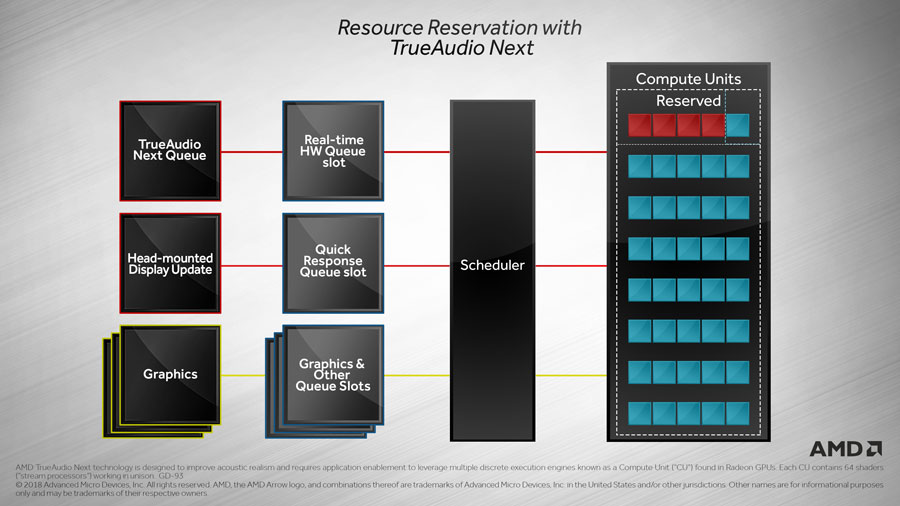AMD and Valve recently announced their cooperation to bring support for AMD’s TrueAudio Next (TAN) in Steam Audio, delivering increased acoustic complexity and detail to VR content while significantly speeding up audio processing and improving overall performance.
According to Valve, AMD TrueAudio Next (TAN) is a software library that implements high-performance convolution – a filtering technique – for audio data on supported GPUs. TrueAudio Next also provides a feature called Resource Reservation, which allows developers to dedicate a portion of the GPU’s computational resources to be spent on time-sensitive tasks such as audio processing. Here is a brief explanation of both of these high-level features of TAN.

TAN has two high-level features to maximize audio performance on systems:
- AMD Resource Reservation: Allows developers to reserve a portion of the GPU compute exclusively for audio processing. Developers can dedicate 20-25 percent of a GPU’s compute units for audio processing and can be enabled or disabled on a scene-by-scene basis.
- GPU compute Convolution Algorithms: Enables developers to increase the acoustic complexity and detail in their games and VR applications using time-varying convolution reverb. Time-varying convolution reverb can model a wide range of acoustic phenomena, and leads to an increased sense of presence, which is must have for creating true immersion in VR titles.
These features offer several advantages to developers, ultimately enabling better performance and more immersive experiences including:
- Greater auditory complexity: Gives developers the option of increasing the number of audio sources, Ambisonics order for indirect sound, impulse response (IR) length and more.
- Frees up CPU resources: Moves convolution from the CPU to the GPU, reducing the fraction of time spent by the CPU on audio processing, letting the CPU to be used by other tasks, like physics simulation or AI.
- Reduces/Eliminates unwanted clicks, pops and audio glitches: Rendering a complex scene won’t cause audio processing to slow down, avoiding unwanted audio glitches.
- Assists with silky-smooth performance: Prevents any sudden frame-rate drops and stuttering, since audio processing does not interfere with graphics or CPU processing.
For more information on TAN and the new integration, as well as how to enable TAN in Steam Audio, using the Unity, FMOD or Unreal Engine 4 plug-ins or C API check out the following blog and video.
